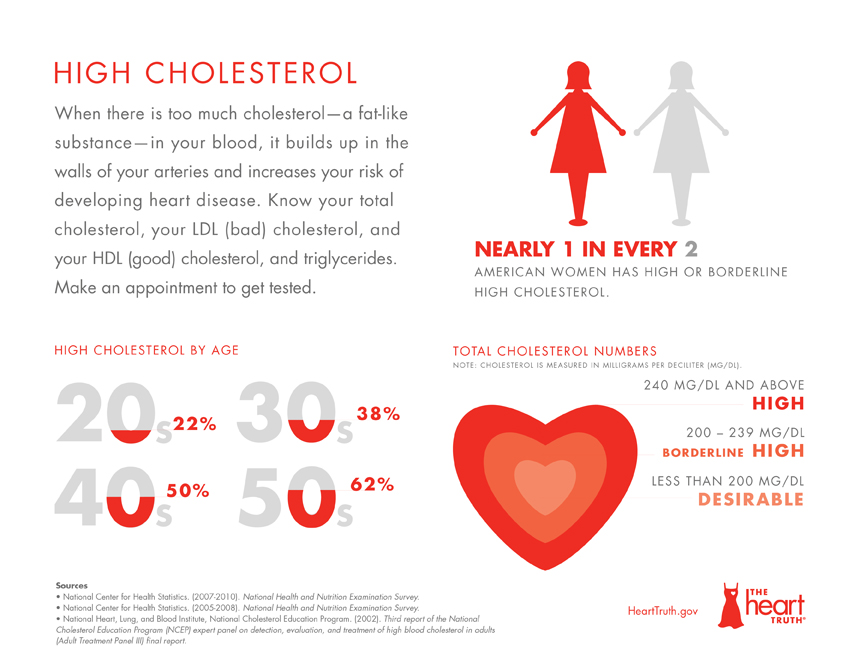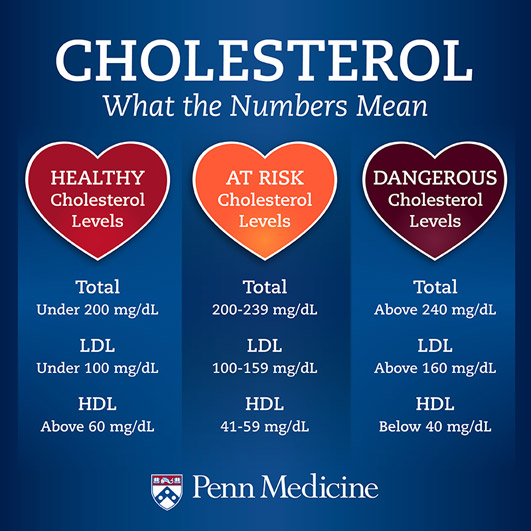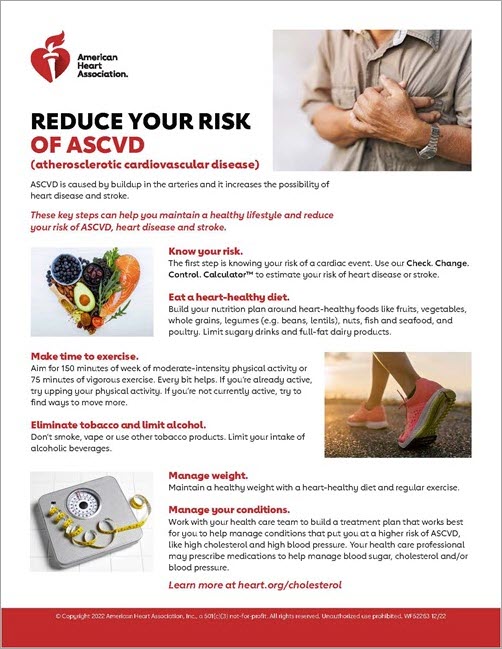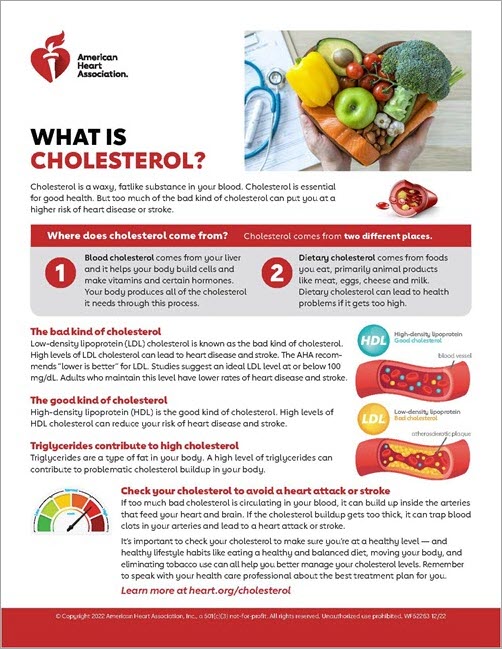Uncover the surprising connection between high LDL cholesterol levels and heart health risks. Is this common belief true? Read on.
Table of Contents
- Introduction: Understanding Cholesterol and Our Heart
- How Does High LDL Affect The Heart?
- Why is Managing LDL Cholesterol Important?
- Factors That Influence LDL Cholesterol Levels
- Symptoms of High LDL Cholesterol
- How to Lower High LDL Cholesterol
- Treatment Options for High LDL Cholesterol
- The Power of Prevention: Your Role in Heart Health
- Conclusion: Taking Charge of Your Cholesterol for a Healthier Heart
- FAQs: Answers to Your Questions About LDL Cholesterol and Heart Health
Introduction: Understanding Cholesterol and Our Heart
In order to understand why high LDL is risky for heart health, we first need to grasp the basics of cholesterol and its impact on our bodies. Cholesterol is a type of fat that our bodies need to function properly. However, not all cholesterol is created equal. There is what we call ‘good’ cholesterol and ‘bad’ cholesterol, each playing a different role in our overall health.
What is Cholesterol?
Cholesterol is like a waxy, fat-like substance found in every cell of our bodies. It helps in producing hormones, vitamin D, and substances that aid in digestion. Think of it as a builder that constructs essential components our bodies need to work correctly.
LDL Cholesterol: The ‘Bad’ Cholesterol
Now, when it comes to cholesterol, there’s one particular kind we need to keep an eye on, and that’s LDL cholesterol, also known as the ‘bad’ cholesterol. This type of cholesterol is like a troublemaker because high levels of it can cause problems, especially for our hearts. It’s like having too much junk in the pipes that supply blood to our heart! And just like a clogged pipe creates issues in our homes, too much LDL cholesterol can create issues with our heart health.
How Does High LDL Affect The Heart?
High LDL cholesterol levels can have a significant impact on our heart health. Let’s explore how elevated levels of LDL cholesterol can lead to heart health issues.
The Buildup of Plaque
When there is an excess of LDL cholesterol in the bloodstream, it can start to accumulate in the walls of our arteries. Over time, this buildup can form a substance known as plaque. Think of plaque as a sticky residue that sticks to the walls of the arteries like gunk in a pipe.
Problems with Plaque
As plaque continues to grow in the arteries, it can narrow the passageway through which blood flows. This can lead to a condition called atherosclerosis, where the arteries become hardened and less flexible. The narrowing of the arteries limits the amount of oxygen-rich blood that can reach the heart muscle, potentially resulting in complications such as chest pain (angina) or even a heart attack.
Why is Managing LDL Cholesterol Important?
Managing LDL cholesterol is crucial for our overall heart health. LDL cholesterol, often known as the “bad” cholesterol, plays a significant role in the development of cardiovascular diseases if not kept in check. By understanding why managing LDL cholesterol levels is essential, we can take proactive steps to protect our heart.

Image courtesy of www.mylifeinred.net via Google Images
Reducing the Risk of Heart Disease
When LDL cholesterol levels are high, it can lead to the buildup of plaque in the arteries. This buildup restricts blood flow to the heart, increasing the risk of heart diseases such as heart attacks and strokes. By managing LDL cholesterol levels, we can lower this risk and promote heart health.
Maintaining Healthy Blood Vessels
Healthy blood vessels are vital for ensuring that our hearts receive the oxygen and nutrients they need to function properly. High levels of LDL cholesterol can damage these blood vessels over time, leading to complications. By managing cholesterol levels, we can keep our blood vessels healthy and support overall heart health.
What is a Lipid Profile?
A lipid profile is a blood test that gives important information about the fats in your blood. These fats include cholesterol and triglycerides. This test can help your doctor understand your risk of heart disease and figure out the best way to manage it.
The Numbers to Know
When you get back the results of your lipid profile, there are a few key numbers to pay attention to. One of the most important numbers is your LDL cholesterol level. This is often referred to as the “bad” cholesterol because high levels can increase your risk of heart disease.
Factors That Influence LDL Cholesterol Levels
When it comes to LDL cholesterol levels, there are various factors that can influence how high or low they may be. Let’s take a closer look at two significant influencers: diet and genetics.
Diet and LDL Cholesterol
Your diet plays a crucial role in determining your LDL cholesterol levels. Foods that are high in saturated and trans fats can raise your LDL cholesterol, leading to potential heart health issues. These fats are often found in fried foods, processed snacks, and fatty cuts of meat. On the other hand, foods rich in soluble fiber, such as fruits, vegetables, and whole grains, can help lower LDL cholesterol levels. By making smart choices in your diet, you can positively impact your cholesterol levels and overall heart health.
Genetics and Your Cholesterol
Genetics can also play a significant role in determining your LDL cholesterol levels. If your parents or close relatives have a history of high cholesterol, you may be more predisposed to having elevated LDL levels as well. This doesn’t mean that you’re doomed to high cholesterol, but it does highlight the importance of being aware of your family history. By understanding your genetic predispositions, you can take proactive steps to monitor and manage your cholesterol levels through lifestyle choices and regular check-ups.
Symptoms of High LDL Cholesterol
High LDL cholesterol, often referred to as ‘bad’ cholesterol, does not typically cause noticeable symptoms until it leads to more severe health issues like heart disease. This means that you can have high LDL cholesterol levels without feeling any different.
| Reason | Explanation |
|---|---|
| Increased risk of heart disease | High levels of LDL cholesterol can lead to the buildup of plaque in the arteries, increasing the risk of heart disease and heart attacks. |
| Coronary artery disease | High LDL levels are associated with an increased risk of developing coronary artery disease, which can lead to chest pain, heart attacks, and other serious complications. |
| Stroke | Elevated LDL levels can contribute to the formation of blood clots, increasing the risk of strokes. |
| Peripheral artery disease | High levels of LDL cholesterol can also lead to the narrowing of peripheral arteries, reducing blood flow to the limbs and increasing the risk of peripheral artery disease. |

Image courtesy of www.pennmedicine.org via Google Images
The Importance of Regular Check-ups
Since high LDL cholesterol doesn’t manifest itself with clear symptoms, it is crucial to have regular medical check-ups to monitor your cholesterol levels. By conducting routine blood tests, healthcare providers can determine if your LDL cholesterol is elevated and work with you to manage it effectively.
How to Lower High LDL Cholesterol
One effective way to lower high LDL cholesterol is by adopting healthy eating habits. Focus on incorporating more fruits, vegetables, whole grains, and lean proteins into your diet. These foods are rich in nutrients and fiber, which can help lower LDL cholesterol levels. Avoid foods high in saturated and trans fats, such as fried foods and processed snacks, as they can raise LDL cholesterol.
Staying Active
Another key factor in controlling high LDL cholesterol is staying physically active. Regular exercise can help increase your HDL (good) cholesterol levels while lowering your LDL (bad) cholesterol. Aim for at least 30 minutes of moderate exercise most days of the week. Walking, cycling, swimming, or any physical activity you enjoy can make a significant difference in managing your cholesterol levels.
Remember, making these simple lifestyle changes can lead to better heart health and reduce the risk of cardiovascular diseases.
Treatment Options for High LDL Cholesterol
When it comes to managing high LDL cholesterol levels, healthcare providers may prescribe medications to help lower them. These medications work in different ways to reduce the amount of LDL cholesterol in your bloodstream. Some common types of medications include statins, which are known to be highly effective in lowering LDL levels. Other medications like bile acid sequestrants and PCSK9 inhibitors may also be recommended based on your individual health needs.

Image courtesy of www.heart.org via Google Images
Lifestyle Changes
Aside from medications, making lifestyle modifications can also play a crucial role in managing high LDL cholesterol. One of the most impactful changes you can make is adopting a heart-healthy diet. This means incorporating more fruits, vegetables, whole grains, and lean proteins into your meals while limiting saturated fats and trans fats. Regular exercise is another important aspect of reducing LDL cholesterol levels. Engaging in physical activity for at least 30 minutes a day can have a positive impact on your lipid profile and overall heart health.
The Power of Prevention: Your Role in Heart Health
Understanding how your choices impact your heart health is crucial. By learning about LDL cholesterol and its effects on your heart, you empower yourself to make informed decisions. Stay curious and ask questions about how to keep your heart healthy.
Building Healthy Habits
Small actions can add up to significant results when it comes to heart health. Make it a habit to choose nutritious foods that help lower LDL cholesterol levels. Incorporate physical activity into your daily routine to keep your heart strong and healthy. By adopting these habits early on, you set yourself up for a lifetime of heart wellness.
Conclusion: Taking Charge of Your Cholesterol for a Healthier Heart
In conclusion, it is crucial to understand the significance of managing your LDL cholesterol levels for a healthier heart. By being aware of the impact of high cholesterol on heart health, you can take proactive steps to maintain optimal well-being.

Image courtesy of www.heart.org via Google Images
Revisiting the Importance of Heart Health
Remember, your heart is at the center of your body’s functioning, and keeping it healthy is essential for overall wellness. Managing your LDL cholesterol levels is a key factor in preventing cardiovascular diseases and ensuring a strong heart for years to come.
By making healthy choices, staying active, and working closely with your healthcare provider to monitor your cholesterol levels, you can take charge of your heart health and enjoy a life filled with vitality and well-being.
FAQs: Answers to Your Questions About LDL Cholesterol and Heart Health
This section will be dedicated to addressing the most common questions related to LDL cholesterol and heart health.
What is LDL Cholesterol?
LDL cholesterol, also known as “bad” cholesterol, is a type of cholesterol that can build up in your arteries and form plaque. This can lead to blockages and increase your risk of heart disease and other cardiovascular problems.
Why is High LDL Cholesterol Bad?
High levels of LDL cholesterol are bad because they can clog your arteries, making it harder for blood to flow freely. This restriction in blood flow can lead to serious heart issues, such as heart attacks and strokes.
How Can I Lower My LDL Cholesterol?
To lower your LDL cholesterol levels, you can make simple lifestyle changes like eating a heart-healthy diet rich in fruits, vegetables, whole grains, and lean proteins. Regular exercise, maintaining a healthy weight, and avoiding smoking can also help in lowering LDL cholesterol.





